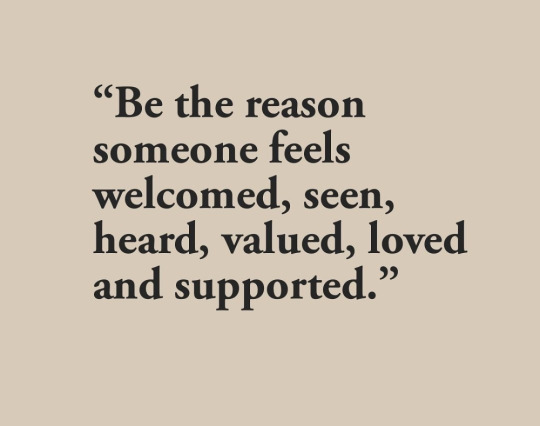With over two decades of experience building companies in New York City, John Velaoras has proved himself to be a capable entrepreneur who can adapt to a wide variety of different roles. He began his career in the automotive industry, running a salvage yard that acquired vehicles from insurance companies and sold them for parts and scrap metal. More recently, he has been invested in KOS Outdoors. As a mobile advertising agency, KOS Outdoors has a fleet of mobile billboards and a vinyl wrapping service that helps companies reach consumers with targeted ad campaigns. Additionally, he is involved in commercial real estate acquisitions through Hammer Group Holdings.
Don't wanna be here? Send us removal request.
Text
There are no excuses anymore. It's time to invest in yourself and create your own opportunities. Start sharing your gifts with the world, even if you have to start small. Abundance is awaiting you. All you must do is claim it.
💋
213 notes
·
View notes
Text
“The victor of the moment feels himself invincible, even though, only a few hours before, he may have experienced defeat; he forgets to treat victory as a transitory thing.”
— Simone Weil, “The Iliad or The Poem of Force”
173 notes
·
View notes
Text
"It does not matter how slowly you go as long as you do not stop." — Confucius
628 notes
·
View notes
Text
"If you want to fly, give up everything that weighs you down." — Buddha
721 notes
·
View notes
Text
Why You Struggle With ✨Discipline✨
Discipline can be hard for many people because they often lack a strong reason or motivation to stick to their goals. It's like wanting something really badly but not having the determination to work for it. How bad do you actually want it? Sometimes, people choose fun things over the things that are good for them in the long run. Others have trouble managing their time and making smart choices, and they give in to distractions or bad habits easily. Fear of both success and failure can also make it tough to stay disciplined. If there's no one to remind them or support them, they might give up too quickly. This is your life and no one is coming to save you. No one can want it for you more than you. Things like phones and social media can also make it hard to focus, but they don't disconnect. Feeling stressed or overwhelmed can mess with discipline too. Having clear goals and a plan can help a lot. Remember, being disciplined is like a skill that you can get better at with practice and by finding ways to stay motivated. Usually, there's nothing really stopping you from achieving your goals, it's mostly you standing in your own way. The thought of missing out on your dreams because you're not disciplined enough can be really tough to handle. Worrying about what could happen 5 years from now causes you anxiety and paralyses you. It's difficult to accept that you could have it all with just a bit of effort. So, discipline is not only about getting things done but also about achieving the life you want and avoiding the regret of not trying harder.
4K notes
·
View notes
Text
The Impact Of Technology On Modern Real Estate

Technology has profoundly reshaped nearly every industry, and real estate is no exception. Over the last few decades, advancements in technology have revolutionized how properties are bought, sold, and managed. This transformation is not only streamlining processes but also creating a more transparent and efficient real estate ecosystem.
One of the most significant impacts of technology on modern real estate is the accessibility of information. Prospective buyers and renters now have a wealth of data at their fingertips. Online platforms and apps provide detailed listings, virtual tours, neighborhood statistics, and market trends. This wealth of information empowers consumers to make informed decisions without relying solely on traditional agents. It also saves time, as users can narrow their options before physically visiting properties.
Virtual and augmented reality have further enhanced the property viewing experience. Virtual tours allow potential buyers to explore properties from the comfort of their homes, offering a 360-degree perspective. Augmented reality can overlay furniture and design elements onto empty spaces, helping buyers envision the potential of a property. These tools are especially valuable for international buyers or those relocating to new cities, as they eliminate geographical barriers.
The rise of artificial intelligence and data analytics is also shaping the industry. Predictive analytics uses historical data to forecast market trends, enabling agents and investors to make strategic decisions. AI-powered chatbots are enhancing customer service by providing instant responses to inquiries, scheduling viewings, and even guiding users through the mortgage process. This automation allows agents to focus on more complex tasks while ensuring a seamless customer experience.
Blockchain technology is addressing transparency and security concerns in real estate transactions. Traditionally, property transactions have been plagued by paperwork, lengthy processes, and potential fraud. Blockchain streamlines these processes by creating secure, immutable records of ownership and transactions. Smart contracts further simplify the buying and selling process by automatically executing agreements once predefined conditions are met.
The sharing economy, enabled by platforms like Airbnb, has introduced new investment opportunities and challenges in the real estate market. Property owners can now generate income by renting out spaces on a short-term basis. However, this trend has also led to regulatory scrutiny in many cities as governments work to balance economic benefits with housing availability and affordability.
Sustainability is another area where technology is driving change. Smart home systems allow for energy-efficient solutions, such as automated lighting, climate control, and water management. Green building technologies are becoming standard practice, aligning with growing consumer demand for environmentally friendly living spaces. These innovations not only reduce costs but also appeal to eco-conscious buyers and tenants.
The integration of technology into real estate is not without its challenges. While digital tools make the industry more accessible, they also increase competition. Agents and agencies must constantly adapt to new technologies to remain relevant. Additionally, data security concerns are ever-present, with the potential for breaches posing risks to sensitive client information.
Technology has transformed real estate into a dynamic and rapidly evolving industry. From virtual tours and AI-driven insights to blockchain security and sustainable building practices, the possibilities are vast. As innovation continues, real estate professionals who embrace these changes will be better equipped to meet the needs of a tech-savvy clientele and thrive in a competitive marketplace.
0 notes
Text
Essential Gear Every Angler Needs

Fishing is a rewarding activity that combines skill, patience, and a love for the outdoors. Whether you are a seasoned angler or a beginner, having the right gear is essential for a successful and enjoyable fishing experience. The equipment you choose can greatly impact your comfort, efficiency, and ability to catch fish, making it important to invest in quality items that suit your needs and preferences.
A fishing rod and reel are the foundation of any angler’s gear. The type of rod and reel you need depends on the kind of fishing you plan to do. Spinning rods and reels are versatile and ideal for beginners, as they are easy to use and work well for a variety of fish species. Baitcasting reels, on the other hand, offer greater accuracy and control, making them a favorite among experienced anglers. Fly rods are designed specifically for fly fishing, a technique that requires precise casting and specialized equipment. Choosing the right rod and reel involves considering factors such as the type of water, target species, and personal skill level.
Fishing line is another critical component of your setup. Monofilament, fluorocarbon, and braided lines each have their own advantages and applications. Monofilament is affordable and versatile, making it a popular choice for general use. Fluorocarbon is nearly invisible underwater, making it ideal for clear water conditions where fish are easily spooked. Braided lines are strong and durable, suitable for catching larger fish or fishing in heavy cover. Having the appropriate line strength and length ensures that you are prepared for different fishing scenarios.
Hooks and bait are essential for attracting and catching fish. A variety of hook sizes and styles should be included in your tackle box to accommodate different species and fishing techniques. Live bait, such as worms, minnows, or shrimp, is highly effective and appeals to a wide range of fish. Artificial lures, including jigs, crankbaits, and soft plastics, are versatile and can be tailored to mimic the appearance and movement of natural prey. Experimenting with different baits and lures allows you to adapt to changing conditions and preferences of the fish.
A tackle box is indispensable for organizing and storing your gear. Modern tackle boxes come in various sizes and designs, with compartments for hooks, lures, weights, and other accessories. Keeping your gear organized not only saves time but also ensures that you have everything you need readily accessible during a fishing trip. Some anglers prefer tackle backpacks for their portability and convenience, especially when fishing in remote locations.
Safety equipment is often overlooked but is vital for a successful outing. A life jacket is essential when fishing from a boat or in deep waters, ensuring your safety in case of an accident. Polarized sunglasses protect your eyes from harmful UV rays and reduce glare on the water’s surface, allowing you to see fish and underwater structures more clearly. Sunscreen, a first aid kit, and insect repellent are other must-haves to protect against environmental hazards.
For those fishing in unpredictable weather, proper clothing is a key consideration. Waterproof jackets, waders, and non-slip boots keep you dry and comfortable, enabling you to focus on fishing rather than the elements. Layering your clothing allows you to adjust to changing temperatures and conditions, ensuring a more enjoyable experience.
Fishing tools and accessories enhance convenience and efficiency. Pliers are indispensable for removing hooks, cutting lines, and making adjustments to your gear. A landing net makes it easier to bring in your catch without causing harm to the fish. Measuring tape or scales are useful for documenting your catches, especially if you practice catch-and-release fishing or participate in tournaments. A fishing rod holder, cooler, and portable chair can further enhance your comfort and enjoyment during extended trips.
Essential gear ensures that anglers are prepared for a variety of conditions and challenges. Investing in high-quality equipment not only improves your chances of success but also enhances the overall fishing experience. Whether you are exploring tranquil lakes, rushing rivers, or open seas, the right gear empowers you to fully enjoy the thrill and serenity of fishing.
0 notes
Photo

Follow us to fuel your daily journey of self-growth!
2K notes
·
View notes
Text






“success is the sum of all efforts, repeated day-in & day out.” – R. Collier
421 notes
·
View notes
Text
“The older you get, the more you choose calm over chaos and distance over disrespect. Drama becomes intolerable to you and your peace becomes your ultimate priority. You start surrounding yourself with people who are good for your mental health, heart and soul.” — Unknown
1K notes
·
View notes
Text
"Believe in yourself and all that you are. Know that there is something inside you that is stronger than any obstacle." – Christian D. Larson
3K notes
·
View notes
Text
Exploring Hidden Gems Around The World

Traveling often brings to mind famous landmarks and iconic destinations, yet the true magic of exploration lies in uncovering hidden gems. These lesser-known destinations offer unique experiences, free from the throngs of tourists and commercialized attractions. Venturing off the beaten path reveals places rich in culture, history, and natural beauty, providing travelers with a deeper connection to their surroundings.
Hidden gems often exist in the shadows of more famous destinations. For instance, while Paris is celebrated for its grandeur, the village of Eguisheim in France’s Alsace region charms visitors with its colorful half-timbered houses and winding cobblestone streets. Similarly, travelers to Italy might bypass the Amalfi Coast to discover Tropea, a cliffside town in Calabria boasting pristine beaches and dramatic views of the Tyrrhenian Sea. These quieter locales allow for immersive experiences without the distractions of large crowds.
Nature enthusiasts will find abundant hidden treasures across the globe. The Faroe Islands, located between Iceland and Norway, are a haven of untouched landscapes, where emerald cliffs rise above the North Atlantic Ocean. In South America, the Quilotoa Loop in Ecuador offers breathtaking trails leading to a stunning crater lake, surrounded by small indigenous villages. Exploring these natural wonders provides a sense of adventure and tranquility, as well as an appreciation for the planet’s diverse ecosystems.
Cultural immersion is another reward of seeking out hidden gems. Smaller towns and regions often preserve traditions and lifestyles that larger cities have left behind. In Japan, the village of Shirakawa-go is a UNESCO World Heritage Site known for its gassho-zukuri farmhouses, some of which date back centuries. Visitors can learn about local customs, enjoy regional delicacies, and experience authentic hospitality. Similarly, the town of Chefchaouen in Morocco captivates travelers with its blue-painted streets and vibrant artisanal markets, offering a glimpse into Moroccan heritage and artistry.
Hidden gems are not limited to remote locations; urban explorers can uncover unique spots within bustling cities. In Berlin, the Street Art Alley near Hackescher Markt showcases the creative expressions of local and international artists, offering a different perspective on the city’s history and identity. In Buenos Aires, the lesser-known neighborhood of Chacarita reveals a thriving arts scene, cozy cafes, and historical landmarks like the Chacarita Cemetery, often overshadowed by the famous Recoleta Cemetery.
Food and drink are integral to the travel experience, and hidden culinary gems often deliver unforgettable flavors. The town of San Sebastian in Spain is renowned for its pintxos, small bites served in local bars that rival the finest gourmet dining. In Vietnam, the riverside town of Hoi An offers authentic street food like cao lầu and bánh mì, made using traditional methods passed down through generations. Sampling these local specialties provides insight into the region’s culture and traditions.
Discovering hidden gems requires curiosity, patience, and a willingness to step outside comfort zones. Engaging with locals is one of the best ways to uncover these treasures, as residents often have insider knowledge of the best spots to visit. Taking the time to research lesser-known destinations and embracing spontaneous detours can lead to unexpected adventures and memories that last a lifetime.
Exploring hidden gems around the world not only enriches personal experiences but also supports sustainable tourism. By visiting lesser-known areas, travelers help distribute economic benefits more evenly and reduce the strain on popular destinations. These journeys foster a deeper appreciation for the diversity and beauty of the world, proving that the most rewarding discoveries often lie in the places less traveled.
0 notes
Text
Top Strategies For First-Time Home Buyers

Buying your first home is an exciting milestone, but it can also be overwhelming. With so many factors to consider and decisions to make, it’s essential to approach the process strategically. Proper planning and informed choices can help ensure that your first home purchase is both financially sound and emotionally fulfilling. Here are some strategies to help you navigate the journey.
Start by determining your budget. Knowing how much you can afford is the foundation of your home-buying process. Assess your income, expenses, and savings to calculate what you can comfortably allocate toward a mortgage. Factor in additional costs such as property taxes, insurance, and maintenance. Getting pre-approved for a mortgage is also crucial. It not only helps you understand your borrowing capacity but also shows sellers that you’re a serious buyer.
Researching the housing market in your desired area is another essential step. Take the time to learn about property values, neighborhood amenities, and local trends. This knowledge will empower you to make informed decisions and identify a home that meets your needs and fits your budget. Consider working with a real estate agent who has expertise in the area. An experienced agent can provide valuable insights, negotiate on your behalf, and guide you through the complexities of the transaction.
Prioritize your must-haves versus nice-to-haves. First-time buyers often face the temptation to find a “perfect” home, but it’s important to stay realistic. Focus on key features that align with your lifestyle, such as location, size, and layout. Be prepared to compromise on non-essential elements to stay within your budget.
Conduct a thorough home inspection before finalizing your purchase. This step is non-negotiable and can save you from unexpected expenses down the line. A professional inspector will assess the property’s condition, identify potential issues, and provide you with a detailed report. Use this information to negotiate repairs or price adjustments if necessary.
Consider the long-term implications of your purchase. Think about how the home will fit your needs not just today but in the future. Are you planning to grow your family? Will the commute to work remain manageable? Ensuring that your first home aligns with your long-term goals can prevent the need for premature relocation.
Finally, don’t rush the process. Buying a home is a significant commitment, and it’s important to take your time to make the right decision. Trust your instincts, seek advice from trusted friends or family members, and remain patient as you explore your options. With careful planning and a strategic approach, your first home-buying experience can be both rewarding and stress-free.
0 notes
Text
"Attitude is a little thing that makes a big difference." — Winston Churchill
27 notes
·
View notes


